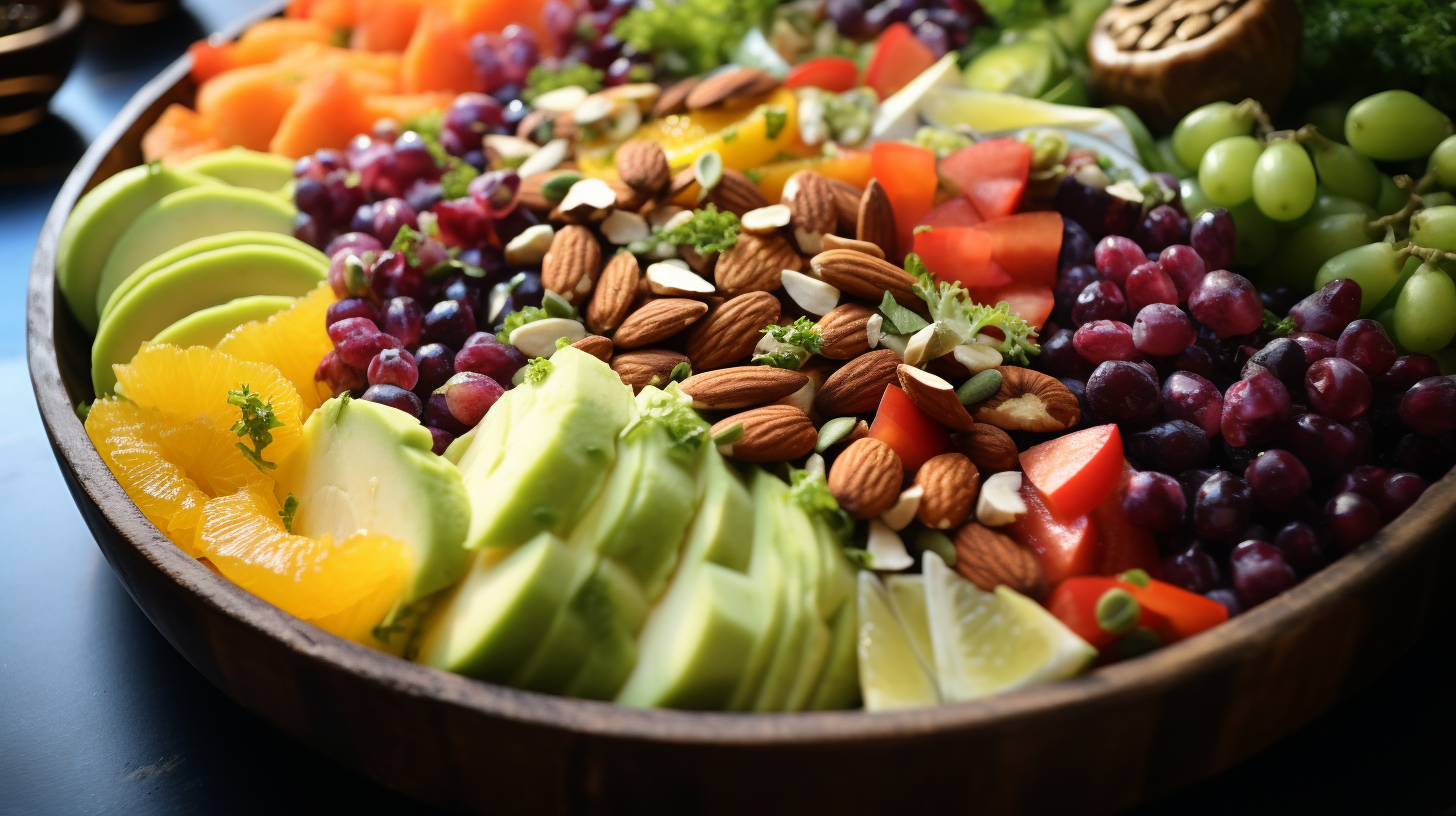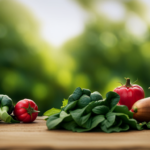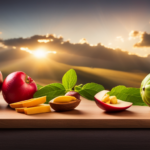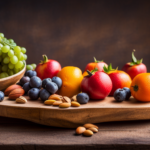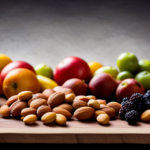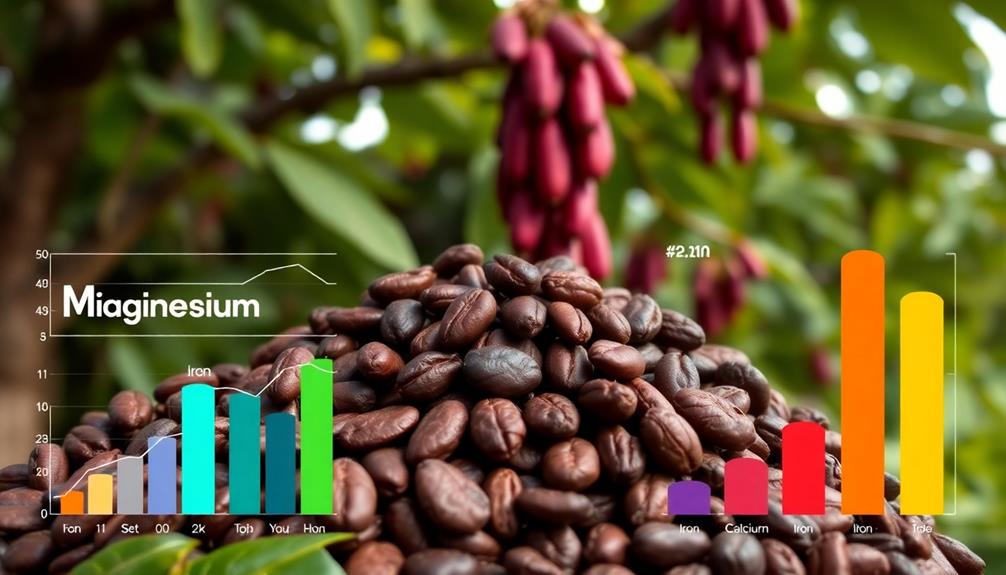The popularity of raw food diets is increasing as people seek healthier and more sustainable lifestyles. It is important to recognize that not all raw foods are created equal. There is a lot of misinformation and misconceptions around the benefits of a nutritious raw diet and how our bodies process these foods differently from cooked ones.
As a raw food nutrition expert, I want to clear up some of the misunderstandings so you can make informed decisions about your health.
Raw foods provide numerous benefits when eaten in moderation and with proper preparation techniques. For example, enzymes found in certain raw vegetables help improve digestion, while nuts and seeds offer essential fats for energy production. However, many people don’t understand that eating too much uncooked produce could lead to nutrient deficiencies or digestive issues such as bloating or gas.
In this article I’ll explain why these common misconceptions exist, explore ways to enjoy raw foods safely, and discuss which types of nutrients should be included in a balanced raw food diet. One reason these misconceptions exist is the lack of understanding about the history of raw food diets. Many people may not be aware of the long-standing traditions of consuming raw foods in various cultures around the world. Additionally, misconceptions may arise from misinformation about the potential health benefits and risks associated with a raw food diet. It’s important to consider the raw food diet history when addressing these misconceptions and to educate people about the potential benefits of incorporating raw foods into their diet.
Benefits Of Eating Raw Foods
When it comes to understanding the world of nutrition and healthy eating, there are numerous misconceptions surrounding raw foods. Contrary to what many people believe, going on a raw food diet doesn’t mean you have to give up flavor or variety! In fact, those who commit to this way of eating often find that they enjoy their meals more than ever before – each bite is full of vibrant flavors and essential nutrients.
But why should we be so enthusiastic about consuming mostly raw foods?
The key lies in dietary balance. Eating at least some portion of your daily food intake as uncooked dishes helps keep your digestive enzymes active, allowing for better absorption of vital vitamins and minerals from other cooked meals throughout the day. This means that you can enjoy both hot soups and crunchy salads without worrying about not getting enough nutrition per meal.
Additionally, because you’re utilizing ingredients in their most natural state (i.e., unprocessed), you’ll also gain access to countless amounts of beneficial plant compounds such as antioxidants, polyphenols, carotenoids, flavonoids and much more!
It’s true: while following a predominantly raw food diet may seem daunting at first glance, with proper knowledge and dedication it become an incredibly rewarding experience. And although certain nutrient deficiencies may occur if one isn’t careful when selecting individual items, with the right guidance these issues can easily be avoided…
Understanding Nutrient Deficiencies
Raw foods are a great way to get all the nutrients you need, but there are some common misconceptions when it comes to eating raw. Many people think that by simply eating raw food they will automatically gain more nutrition than they would if they cooked their meals. This isn’t necessarily true, as many of the essential vitamins and minerals can be lost when cooking food.
It is important to understand how nutrient loss works in order to make sure you are getting enough from your diet. Preserving nutrients is key for those on a raw diet, and dehydration methods like sun-drying, air-drying or oven drying can help retain the majority of vitamins and minerals found in fruits and vegetables.
Sprouting, fermenting, juicing or blending also help maintain the nutritional value of certain produce items while still providing plenty of flavor. Additionally, adding herbs and spices to dishes can provide additional health benefits such as helping reduce inflammation, aiding digestion or boosting immunity.
The most important thing when it comes to preparing raw foods is understanding which preparation method keeps each item’s nutrients intact; this could mean blanching spinach instead of boiling it or lightly sautéing kale rather than roasting it at high temperatures. Using these strategies with fresh ingredients helps ensure you reap all the benefits without sacrificing taste!
How To Properly Prepare Raw Foods
In today’s world, there are many misconceptions surrounding raw food. Back in ye olden days, humans relied heavily on naturally cooked fruits and vegetables to stay healthy – but now, with all of the information available at our fingertips, more people are turning to uncooked produce for their daily nutrition needs.
As a raw food nutrition expert, I’m here to tell you that properly preparing these foods is essential! When it comes to cooking techniques for raw foods, fermentation is key – this method not only preserves freshness and flavor, but also increases the nutrient content of your meal.
While some may argue that heating certain veggies can increase their nutritional value, fermenting them instead makes sure that none of those valuable vitamins and minerals get lost along the way! Additionally, fermenting provides an extra bonus: probiotics and beneficial enzymes which help boost digestion.
With so much emphasis placed on eating healthily nowadays, it’s important to remember that too much of anything isn’t necessarily good for us – including uncooked produce. Knowing how to prepare your meals safely and combining traditional methods like fermentation with modern knowledge can ensure you’re getting the most out of your diet while avoiding any potential risks associated with eating too much raw food.
In other words, don’t be afraid to experiment – just make sure you know what you’re doing first!
Risks Of Eating Too Much Uncooked Produce
After taking the time to properly prepare raw foods, it is important to understand that there are potential risks associated with consuming too much uncooked produce.
Raw food nutrition experts agree that while some individuals may experience physical benefits from a diet consisting of mostly raw food, they should be aware of any allergies or sensitivities they have before making drastic changes to their eating habits. Additionally, those pursuing a raw vegan diet should take into account how quickly fresh fruits and vegetables can spoil when stored outside of refrigeration.
It’s essential for anyone considering an exclusively raw diet to recognize the importance of proper hygiene practices in order to avoid contamination or bacterial growth on unprocessed foods such as sprouts, microgreens and herbs which create additional health risks. Foods like these must be washed thoroughly under running water prior to consumption in order to reduce the chance of illness due to harmful bacteria on the surface.
It is also wise for people transitioning into a vegetarian lifestyle involving fewer cooked meals than usual to increase their intake of alternative proteins including nuts, seeds, legumes and grains – all staples in many traditional dietary cultures around the world.
People who plan on embarking on this journey need to remember that moderation is key! Eating large amounts of anything can lead to digestive issues, so it’s best not only for your gut but overall health if you stick within recommended servings sizes each day and rotate what kinds of products you consume regularly. This way, you will ensure adequate nutrient intake without overdoing it in one particular area; plus variety keeps things exciting and helps keep cravings at bay.
With this knowledge in mind let us now turn our attention towards examining the nutritional value of a raw vegan diet.
Raw Vegan Diets
Raw vegan diets are becoming increasingly popular for people looking to improve their health and wellness.
While some may be concerned that protein sources will not be available on such a restrictive diet, there is no need to worry. There are plenty of alternative proteins available to raw vegans that make it easy to get the nutrients they need without compromising taste or nutrition. Nuts, seeds, legumes, mushrooms, algae-based products like spirulina and chlorella, and sprouted grains all provide significant amounts of plant-based proteins while still being considered raw foods.
Furthermore, those who have difficulty transitioning away from cooked alternatives can rest assured knowing that many of these same ingredients can also be lightly steamed or sautéed in order to gain even more nutritional benefits.
It’s important for anyone considering starting a raw vegan lifestyle to do their research beforehand and seek professional guidance if necessary as well as find recipe ideas online or in cookbooks so mealtime does not become mundane or overly repetitive.
Additionally, having access to a wide variety of fresh produce allows for creative ways to incorporate familiar flavors into meals without sacrificing the core principles of a raw vegan diet.
By following these guidelines and understanding the potential pros and cons of switching over to this type of eating plan, individuals can better equip themselves with the knowledge needed in order to successfully transition into a healthier lifestyle through a raw vegan diet. With careful planning and dedication, one can benefit greatly from incorporating more fresh fruits and vegetables plus other alternative sources of protein into daily meals – paving the way toward improved overall wellbeing!
To further explore how this dietary change could help promote weight loss goals…
Raw Food Diet For Weight Loss
Raw food diets are often considered to be a great way to lose weight. But, it’s important to understand that simply eating raw foods won’t guarantee you’ll drop the pounds. To be successful in losing weight on a raw food diet, there are some key components of portion control and making healthy choices that you need to consider.
First off, understanding your body’s needs for calories is essential when following a raw food diet for weight loss. You should aim for consuming enough energy throughout the day so that your body isn’t deprived of necessary nutrition – but not too much where you’re taking in excess sugars or unhealthy fats.
Portion sizes matter; try cutting back just a little bit at each meal and see how that affects your overall health!
When choosing what types of foods to eat while on a raw diet, make sure they contain plenty of nutrient-dense items such as:
- Vegetables like kale, spinach, broccoli and cauliflower
- Nuts & seeds including almonds, cashews and chia
- Fruits like apples, oranges and berries
It also helps if these ingredients can all be found locally – this will help ensure freshness as well as reduce transportation costs associated with buying from large supermarkets or online sources.
Eating foods high in fiber can also help promote satiety which leads to smaller portions consumed over time. With mindful attention paid towards both calorie intake and food selections, the goals of healthier living through sustainable weight loss may soon become obtainable!
Nutritional Benefits Of Raw Foods
With the knowledge of how a raw food diet can help with weight loss, it’s time to explore the nutritional benefits that this lifestyle provides.
Eating fresh and unprocessed foods is one way we can give our bodies all of the nutrients it needs for optimal health without having to consume synthetic or artificial vitamins and minerals.
Plus, when you choose to eat raw foods, you get to experience culinary creativity in its purest form!
Raw vegan cuisine offers us an abundance of probiotic balance – meaning that your gut bacteria are getting their fair share of nourishment from prebiotics found in produce like garlic, onions, asparagus, broccoli and cabbage.
This helps keep your digestion regular while providing essential enzymes needed for proper nutrient absorption.
Furthermore, consuming more plant-based proteins like quinoa, chia seeds and legumes not only supports muscle growth but gives you a great source of energy throughout the day.
Eating raw doesn’t have to be boring either; there’s so much variety out there!
You can experiment with different recipes using sprouted grains and legumes which offer even more nutrition than non-sprouted varieties.
Sprouting these ingredients also increases their digestibility by breaking down complex carbohydrates into simpler ones that are easier on our digestive system.
With some creative thinking and delicious recipes at hand, it’s easy to add more raw meals into any diet plan – no matter what your goals may be!
The Benefits Of Sprouting Grains And Legumes
I’m sure many of you have heard that soaking nuts and sprouting seeds can be beneficial to your health, but do you know why?
Sprouted grains and legumes are packed with essential vitamins, minerals, proteins, amino acids, and enzymes. A lot of these nutrients become more easily accessible when they’ve been soaked or sprouted.
Soaking or sprouting also helps rid the grain or legume of antinutrients which can cause digestive problems if consumed in large quantities. What’s great about sprouts is that they’re easy to make at home!
All you need to do is soak them overnight in filtered water before draining and rinsing the next day. It’s important to rinse often throughout the process as this will help remove any bacteria or mold during the growth stage.
Once the seed has germinated fully it’s ready for consumption – just remember not to eat too much raw food all at once! Now that we understand some of the key benefits associated with consuming grains and legumes in their raw form, let’s explore some of the dangers associated with eating raw meat, fish, and eggs.
Dangers Of Eating Raw Meat, Fish, And Eggs
When it comes to raw food diets, many people think that eating raw meat, fish, and eggs is safe. Unfortunately, this couldn’t be further from the truth.
Raw animal products contain bacteria and parasites that can make us sick if we don’t take proper precautions. Even after soaking these foods in a saline solution for safety purposes, there are still risks associated with consuming them raw. Our best bet is to cook the food thoroughly before eating it to kill any harmful organisms present.
It’s also important to remember that storing our food properly is essential for avoiding foodborne illness when following a raw food diet. Keeping fresh produce refrigerated or frozen until ready to use helps prevent spoilage caused by microorganisms like mold and yeast which can contaminate other foods stored nearby.
Additionally, keeping cooked items separate from uncooked ones during preparation prevents cross-contamination of potentially dangerous substances like salmonella and E coli found on raw meats and eggs.
With all of this in mind, it’s clear why taking extra care with food storage and preparation is so important when adhering to a raw food regimen.
Following these guidelines will help ensure your meals are as healthy – and as delicious – as possible! Moving forward into the next section about food safety for raw food diets, let’s explore what else we need to know in order to enjoy guilt-free meals every day.
Food Safety For Raw Food Diets
Raw food diets are often misunderstood and feared due to the potential for contamination from bacteria and other microbes. But with proper meal planning, storage, and preparation techniques you can enjoy a delicious raw diet without sacrificing your health!
It’s true that eating raw foods involves some risks – but they’re not as severe as people think. With careful food storage and handling practices, you’ll be able to reduce the risk of bacterial growth while maintaining all the benefits of a healthy raw diet. Here are just a few tips:
-
Food Storage
-
Refrigerate perishable items immediately after purchase or harvesting
-
Store spices in airtight containers away from light and heat
-
Freeze any leftovers promptly at 0°F (-18˚C) or colder
-
Meal Planning
-
Rinse produce thoroughly under cool running water before consuming
-
Avoid cross-contamination by keeping ready-to-eat items away from raw ingredients when preparing meals
-
Serve cooked dishes separate from uncooked items on individual plates
By following these simple guidelines, you can ensure maximum safety while savoring every bite of your nutrient-packed raw food creations! Eating a balanced raw food diet doesn’t have to be hard – once you get used to it, you’ll find there is an abundance of flavors, textures, aromas, and nutrition available. Let’s move onto how to create this kind of variety in your meals…
Eating A Balanced Raw Food Diet
I’m a big believer in the benefits of a balanced raw food diet, but I want to make sure people understand their nutrient requirements and the variety of foods that should be included.
Eating raw food can provide you with essential vitamins and minerals, but it’s important to make sure you’re getting all the nutrients you need from other sources.
To ensure you’re getting the most out of your diet, make sure that you include a variety of raw foods to ensure you’re getting a wide range of nutrients.
Furthermore, it’s important to take the necessary safety precautions when handling and preparing raw foods.
With the right knowledge and preparation, eating a balanced raw food diet can be incredibly beneficial.
Nutrient Requirements
One of the greatest misconceptions about eating a balanced raw food diet is that it’s not nutritionally complete. Many people assume you can’t get all your necessary nutrients from raw foods, but this isn’t true!
The truth is that with some careful planning and consideration for cooking techniques and proper food storage, you can easily meet your nutrient requirements when eating a raw food diet.
Raw fruits, vegetables, nuts, seeds and legumes are packed full of vitamins and minerals essential to good health. Eating these as part of a well-rounded meal plan will ensure you’re getting enough iron, calcium, zinc, magnesium and other key nutrients every day.
Furthermore, by adding in fermented foods like sauerkraut or kimchi into your meals you’ll be able to take advantage of natural probiotics which aid digestion – another important component of maintaining optimal health.
In short: contrary to popular belief it’s totally possible to develop an incredibly nutritious raw vegan lifestyle if one takes the time to understand how they should prepare their food wisely. With a little bit of knowledge on cooking techniques, food storage strategies and knowing what combinations work best together – anyone can enjoy delicious meals while also meeting their daily nutritional needs.
Variety Of Foods
The great thing about eating a raw food diet is that it’s very versatile and allows for lots of variety. You can mix up the types of fruits, vegetables, nuts, seeds and legumes you eat so you don’t get bored with your meals.
Eating a wide array of foods also helps to ensure you’re getting all the vitamins and minerals necessary for good health. Additionally, if you have any specific food allergies or sensitivities this way of eating makes avoiding triggers easier than ever before!
However, when shopping for raw ingredients it’s important to pay attention to storage methods. Make sure anything perishable like leafy greens are kept in airtight containers away from heat sources while keeping items like grains stored in cool dry places free from moisture.
Doing this will help keep certain foods edible for much longer periods resulting in less waste overall. Making an effort to include multiple colors on your plate has its own rewards too! Vibrant hues signify different essential phytonutrients which have their own unique benefits –so be creative and try new things whenever possible!
Food Safety
It’s great to have an understanding of the types of raw foods you should be eating, but it’s equally important to pay attention to how these ingredients are handled. Food hygiene and safety play a huge role in maintaining good health when following this type of diet which is why taking extra precautionary steps can go a long way!
Make sure all produce is washed before eating, check food labeling for expiration dates, use separate cutting boards for meat or fish and store any leftovers in the refrigerator. Additionally, if something has gone bad discard it immediately as consuming spoiled food can lead to sickness.
Furthermore, many people tend to forget that certain items like nuts and seeds need to be pre-soaked before they’re consumed. This improves digestibility while also making them much easier on your digestive system overall –which is always beneficial! Pre-soaking also helps release some of the natural phytonutrients locked within each seed so you get maximum nutritional benefit with every bite.
At the end of the day proper preparation techniques are key when planning your meals ahead of time. Having a better understanding of what goes into creating nutritious dishes will ensure safer storage methods plus more delicious outcomes too!
Raw Foods And Digestive Health
It’s a common misconception that raw foods are hard to digest. This simply isn’t true! Raw food is actually very easy for your body to break down and absorb, as long as you’re getting enough digestive enzymes from other sources such as probiotics or enzyme supplements.
Eating raw food substitutes such as nuts and seeds, which contain higher levels of fats and proteins than cooked options, can also be beneficial in helping the digestive process.
Raw foods are packed with vitamins, minerals, antioxidants and phytonutrients that help nourish the body on a cellular level. These nutrients play an important role in keeping our bodies healthy by aiding digestion, improving circulation and boosting immunity – all key elements to overall health.
So don’t think twice about adding more fresh fruits and veggies into your diet; they’ll provide essential nutrition that will keep your gut functioning smoothly!
There’s no denying the positive impact eating whole foods has on our health – from reducing inflammation to supplying us with vital energy throughout the day. By incorporating raw foods into our diets we not only get access to these natural nutritional benefits but also give our digestive systems a boost.
With this knowledge under our belts let’s move onto exploring how raw foods can detoxify the body…
Raw Foods And Detoxification
Irony of it all: many people think that raw foods are only about deprivation and restriction. On the contrary, raw foodism is actually a lifestyle full of abundance! Eating raw can provide our bodies with a potent detoxification process through its nutrient-dense qualities.
Here’s how:
-
Raw diets emphasize eating whole plant-based foods to get plenty of vitamins and minerals in each meal.
-
Incorporating detoxifying herbs into meals or juices helps to purify your body from toxins.
-
Longer periods of fasting on raw fruits and vegetables give your digestive system time to rest, allowing for more efficient elimination of waste products from the body.
-
Regularly consuming high quality cold pressed oils like flaxseed oil help lubricate and protect cells while also providing essential fatty acids needed for optimal health.
It’s clear that when done right, following a raw diet not only provides us with delicious meals but also offers an effective way to eliminate harmful substances from our bodies as well as improve overall wellness.
With this newfound knowledge, we can confidently move forward towards creating healthier lives for ourselves one bite at a time! And so, let us now explore how this approach to nutrition impacts the environment…
Raw Foods And The Environment
It is no secret that what we put in our body affects the environment. Raw foods are a great way to help reduce one’s impact on the planet, while still enjoying delicious meals.
As an expert in raw food nutrition, I encourage everyone to consider how their dietary choices affect the environment and make sustainable decisions when it comes to shopping for ingredients.
One of the most significant ways you can reduce your environmental footprint through diet is by purchasing zero waste or package-free products whenever possible. This means avoiding items like boxed cereals or individually wrapped snacks and instead opting for bulk bin options such as nuts, seeds, dried fruits, grains, legumes and other staples.
You should also aim for sustainable sourcing practices when choosing meat and dairy alternatives, ensuring that those items have not been produced using animal cruelty methods or harming natural ecosystems.
When it comes to reducing one’s environmental impact with food choices, there are many benefits beyond just helping preserve nature – they can also be beneficial to one’s mental health! Eating ethically sourced dishes can contribute towards feelings of satisfaction knowing that you took steps to protect animals and the planet; this sense of accomplishment often carries over into other aspects of life leading to greater peace of mind overall.
With this knowledge in hand, let us move forward and explore how eating raw foods may also benefit mental health…
Raw Foods And Mental Health
Eating a raw food diet has long been associated with improved mental health and well-being. As plant-based diets become increasingly popular, it’s important to understand the connection between raw foods and our mental state.
Research shows that incorporating more fresh fruits, vegetables, nuts, seeds, and grains into your daily meals can have tremendous effects on both physical and psychological levels of energy. Consuming these nutrient dense foods helps to reduce inflammation in the body which is linked to mood disorders such as depression and anxiety.
Additionally, eating unprocessed whole foods provides essential vitamins and minerals for optimal brain function that may otherwise be lacking from a typical Western diet. Not only does this lead to increased alertness but also enhanced cognitive abilities like focus, concentration and memory recall.
Raw food nutrition not only improves overall physical health but also plays a vital role in regulating emotions and promoting positive thinking patterns. By replacing unhealthy processed snacks with naturally energizing wholefoods we are able to fuel our bodies while improving mental clarity at the same time.
Eating raw has never felt so rewarding!
Frequently Asked Questions
What Is The Difference Between A Raw Vegan Diet And A Raw Food Diet For Weight Loss?
It’s like comparing apples and oranges – a raw vegan diet is drastically different to a raw food diet for weight loss.
A raw vegan diet excludes all animal products, including dairy, which can be included in a raw food plan.
The primary difference between the two diets revolves around health goals: while a raw vegan diet might focus on ethical eating or general wellness, a raw food diet typically has more specific results-oriented objectives such as weight loss or improved digestion.
It is important to note that both diets require an awareness of proper food safety practices, such as thorough washing and storage methods, in order to ensure optimal nutrition from fresh foods.
How Can I Make Sure I Am Getting Enough Nutrients From A Raw Food Diet?
If you’re eating a raw food diet, it’s important to make sure that you’re getting all of the nutrients your body needs.
Eating plenty of fruits and vegetables is key, but there are other sources of nutrition too.
Adding in some raw dairy products like cheese and yogurt can provide essential proteins, vitamins, minerals, and healthy fats.
Raw honey also has many nutritional benefits including antioxidants which help with immunity.
Consuming these foods regularly will ensure that you get enough nutrients while on a raw food diet.
Is It Safe To Eat Raw Meat, Fish, And Eggs?
In this day and age, with the rise of raw food diets, it’s no surprise that folks are asking ‘is it safe to eat raw meat, fish, and eggs?’.
Well, let me tell ya: yes. It is indeed safe to indulge in these uncooked proteins as long as they come from a reputable source. Raw milk can also be enjoyed if you don’t have any allergies or concerns about unpasteurized products.
That being said, eating raw grains – like oats or wheatberries – should be avoided due to potential risk of bacterial contamination.
So there you have it; the answer to your question is simple: Yes! Eating raw animal protein such as meat, fish, and eggs can be done safely when sourced correctly.
What Are The Long-Term Health Benefits Of Eating A Raw Food Diet?
When it comes to long-term health benefits, there is no doubt that eating a raw food diet has some amazing detoxifying effects.
Not only does it help your body naturally cleanse itself of toxins, but the food combining principles behind a raw food diet make sure that you’re getting all of the vital nutrients and minerals your body needs for optimal well-being.
From improved digestion to increased energy levels and even clearer skin, making the switch to an exclusively raw food diet can have lasting beneficial effects on both your physical and mental health!
Are There Any Environmental Benefits To Eating Raw Foods?
As a raw food nutrition expert, I’m often asked about the environmental benefits of eating raw foods. And it’s true – there are many!
Eating plant-based diets can help reduce animal welfare concerns, since no animals need to be slaughtered for consumption.
Plus, when you eat raw foods like fruits and vegetables that have not been processed or cooked, they tend to require fewer resources in their production processes – which means less energy is used overall.
Additionally, consuming unprocessed foods has been shown to improve food safety by reducing your exposure to potential food contaminants found in processed products.
Conclusion
The raw food diet has become increasingly popular in recent years, but it is still plagued by misconceptions. Despite its potential health and environmental benefits, some people worry that a raw food diet might not provide enough nutrients or be safe to eat.
The truth is that the right combination of fruits, vegetables, nuts and seeds can ensure adequate nutrition while providing an array of health benefits. In fact, research shows that eating more than 75% of your meals in their natural state may reduce your risk of chronic disease by up to 25%.
So if you’re looking for a healthy way to lose weight and boost your overall wellbeing, give a raw food diet a try!

